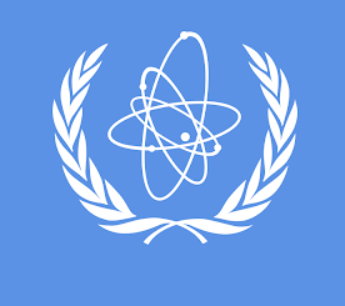Treaty on the Non-Proliferation of Nuclear Weapons
The Treaty on the Non-Proliferation of Nuclear Weapons, commonly known as the Non-Proliferation Treaty (NPT), is an international agreement that seeks to prevent the spread of nuclear weapons and weapons technology, promote the peaceful uses of nuclear energy, and further the goal of achieving nuclear disarmament. The treaty was opened for signature on 1 July 1968 and entered into force on 5 March 1970. As of 2021, 191 states have joined the treaty, making it one of the most widely adhered to arms control agreements.
History
The origins of the NPT can be traced back to the early 1960s when the United States and the Soviet Union, the two superpowers of the Cold War era, began negotiations to limit the spread of nuclear weapons. In 1961, the United Nations General Assembly adopted a resolution calling for an international agreement to prevent the proliferation of nuclear weapons. Negotiations intensified following the Cuban Missile Crisis of 1962, which brought the world to the brink of nuclear war.
Three Pillars
The NPT is based on three pillars:
- Non-proliferation: The treaty prohibits states without nuclear weapons from acquiring or developing them, and requires non-nuclear weapon states to accept safeguards administered by the International Atomic Energy Agency (IAEA) to verify compliance with the treaty.
- Peaceful use of nuclear energy: The treaty recognizes the right of all parties to develop and use nuclear energy for peaceful purposes, and encourages international cooperation in this area.
- Disarmament: The treaty obligates the nuclear-weapon states (the United States, Russia, the United Kingdom, France, and China) to pursue negotiations in good faith on effective measures relating to the cessation of the nuclear arms race and to nuclear disarmament.
Signatories and Parties
The NPT has near-universal adherence, with 191 states having joined the treaty. The five nuclear-weapon states recognized by the treaty are the United States, Russia, the United Kingdom, France, and China. Three states that have never joined the treaty are India, Israel, and Pakistan, all of which possess nuclear weapons. North Korea withdrew from the treaty in 2003 and has since conducted several nuclear weapons tests.
Review Conferences
The NPT provides for a review conference to be held every five years to assess the implementation of the treaty and to make recommendations for further action. The most recent review conference, held in 2015, failed to reach consensus on a final document due to disagreements over the establishment of a Middle East zone free of weapons of mass destruction. The next review conference, originally scheduled for 2020, has been postponed to 2021 due to the COVID-19 pandemic.
Challenges and Criticisms
Despite its successes in limiting the spread of nuclear weapons, the NPT faces several challenges and criticisms:
- Lack of universality: The treaty has not achieved universal adherence, with India, Israel, and Pakistan remaining outside the treaty and North Korea having withdrawn.
- Slow progress on disarmament: Critics argue that the nuclear-weapon states have not made sufficient progress towards disarmament, as required by the treaty.
- Tension between non-proliferation and peaceful use: Some non-nuclear weapon states argue that the treaty’s restrictions on the transfer of nuclear technology impede their ability to develop peaceful nuclear programs.
- Verification and compliance: There are concerns about the effectiveness of the IAEA safeguards system in detecting and deterring non-compliance with the treaty.
Relationship with other Treaties
The NPT is complemented by several other international agreements related to nuclear non-proliferation and disarmament, such as the Comprehensive Nuclear-Test-Ban Treaty (CTBT), which bans all nuclear explosions, and the proposed Fissile Material Cut-off Treaty (FMCT), which would prohibit the production of fissile material for use in nuclear weapons. Regional nuclear-weapon-free zone treaties, such as the Treaty of Tlatelolco in Latin America and the Caribbean, and the Treaty of Pelindaba in Africa, also reinforce the objectives of the NPT.


